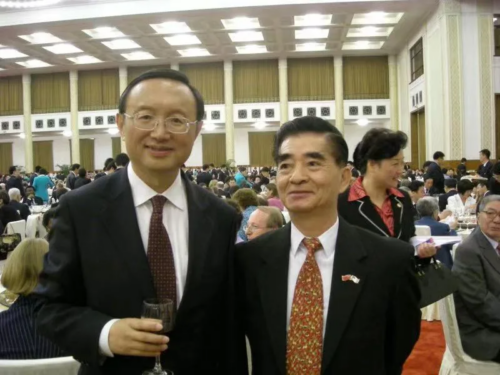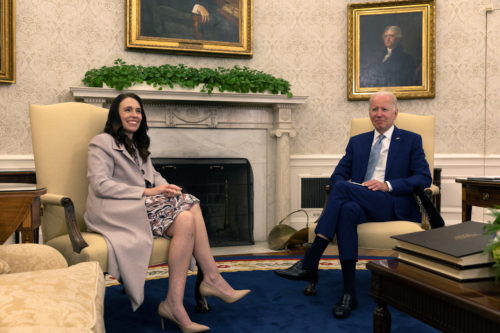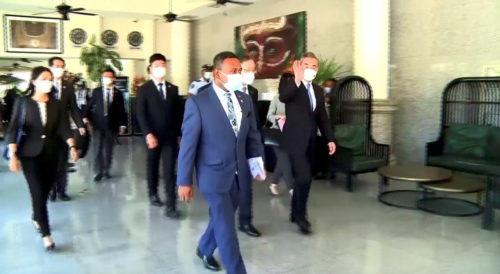China employs ‘magic weapons’ in foreign influence campaigns
A summary of the top news in Chinese politics and current affairs for September 19, 2017. Part of the daily The China Project newsletter, a convenient package of China’s business, political, and cultural news delivered to your inbox for free. Subscribe here.

Last week, a controversy erupted in New Zealand when it was revealed to the public that an important member of that country’s parliament, a naturalized New Zealand citizen originally from China called Yang Jian 杨健, had previously been a Communist Party member and taught English to Chinese spies.
On September 18, Anne-Marie Brady, a scholar of China at the University of Canterbury in New Zealand, published a report using New Zealand as a case study of China’s overseas influence. The report is titled “Magic Weapons: China’s political influence activities under Xi Jinping.” “Magic weapons” (法宝 fǎbǎo) refers to three long-standing pillars of Chinese Communist Party propaganda operations: Party building, military activities, and the one that Xi has raised to “a level of significance not seen in China since the years before 1949” — the United Front Work Department, which does all it can “to guide, buy, or coerce political influence abroad.”
The United Front does this in at least four ways, as summarized by Newsroom:
- “Gaining influence over Chinese migrants living in other countries (10 million Chinese live outside China).
- Taking over or integrating the local ethnic Chinese media with the Chinese media controlled by the Communist Party.
- Encouraging local Chinese who are acceptable to the Chinese government to enter politics in their host countries and if elected getting them to promote China’s interests.
- Appoint[ing] former local MPs with access to political power to high-profile roles in Chinese companies or Chinese-funded entities in the host country.”
More recent reporting on the variety of ways China is, or may be, seeking to gain influence abroad:
- Ma Tianjie writes in Chublic Opinion on how the hit movie Wolf Warriors II is part of a larger push by China’s film industry to promote Chinese nationalism and global prestige. But would more slick blockbusters, tightly woven with Communist Party values, actually advance China’s soft power? Ma isn’t so sure.
- Quartz reports that in retaliation to the University of California, San Diego (UCSD) hosting the Dalai Lama in June, the “China Scholarship Council, a branch of the government that funds overseas study for Chinese citizens, would no longer process applications to study at UCSD for scholars who had not already received a visa appointment from the US embassy.”
- The Globe and Mail says that a journalist at a Chinese-language newspaper in Vancouver, Canada, is filing a human rights complaint with his provincial government because he believes he was fired unfairly after his obituary of Liu Xiaobo was pulled just before publishing.
- Australia
‘Faustian bargain’: Defense fears over Australian university’s $100m China partnership / The Guardian - The Great Hive (?)
Now it’s official: WeChat is watching you / TechNode - Guo Wengui
China’s highest-profile fugitive assailed by businessman who says he was framed for crimes / Reuters - Hong Kong
Hong Kong leader demands end of independence talk, warns ties with Beijing at risk / Reuters - Southeast Asia
China, Singapore look to put difficulties behind them / Reuters
China offers support to Myanmar at U.N. amid Rohingya crisis / Reuters
As her peace icon image fades, Aung San Suu Kyi is winning over a new set of admirers in China / Quartz - Media
Opinion: The dystopian vision that Westerners have about China is pretty backward / Quartz
“I’m not the only one who is torn between admitting China’s problems and defending it against Western narratives,” writes Siyi Chen. - U.S.-China relations
Beijing shrugs off tough talk from Trump’s top trade negotiator / SCMP






